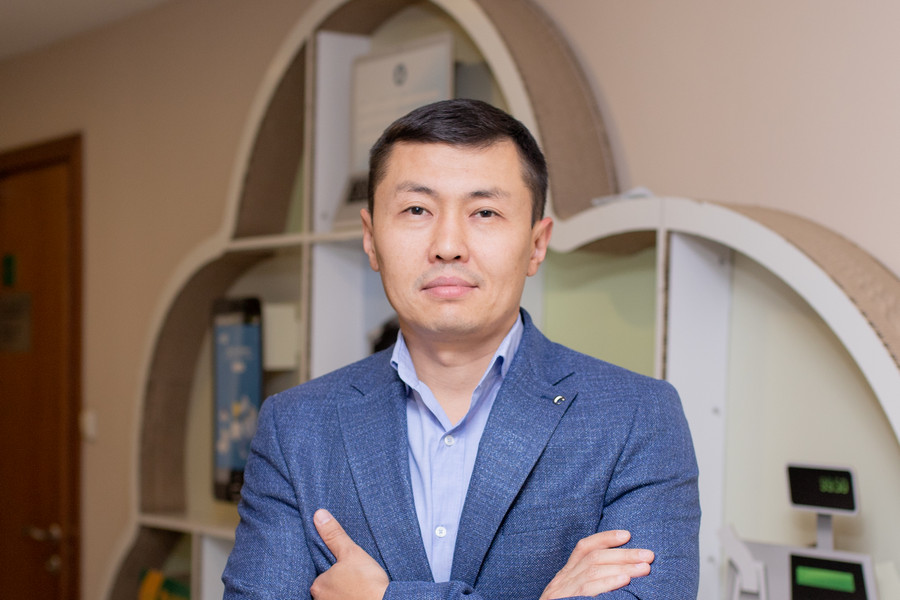Director of the Department of Labor Migration and Social Security of the EEC Paiza SUYUMBAEVA:
WE HOPE THAT THE PENSION BENEFIT AGREEMENT WILL COME INTO FORCE IN THE EAEU IN 2020

The process of signing the agreement on pension benefits for citizens of the Eurasian Economic Union [EAEU] countries has entered the final straight. It is planned that all the necessary domestic procedures will be carried out before August 1, 2019 and the agreement will be signed by the end of the year. Thanks to the agreement, labor migrants of the EAEU states will be able to form their pensions, working outside their home country, and get them without problems when they reach retirement age. Director of the Department of Labor Migration and Social Protection of the Eurasian Economic Commission (EEC) Paiza SUYUMBAEVA talked through this in an interview with Interfax-Kazakhstan.
- Paiza Usenbayevna, tell us what is the point of the pension benefit agreement?
- Currently the pension systems in the EAEU states function differently. Their models, conditions for pension entitlements eligibility, as well as the size and sources of contributions differ. In addition, workers' pension rights are not shaped in all the EAEU countries. As a result, citizens who worked in the other EAEU countries do not receive their pension in full.
Due to the fact that there are such differences and peculiarities, in 2014 the parties to the Eurasian Economic Union began to work on devising an agreement on workers' pension contributions within the EAEU member states.
What will be after the adoption of the agreement? Migrant workers working in the other EAEU countries will be able to form, maintain and then exercise their pension rights, which were formed in the country where they worked. When the agreement comes into force, pensions will be qualified in accordance with the requirement of that state in which they worked. That is, if, for example, a citizen of Kazakhstan worked for a certain number of years in Russia, then upon reaching retirement age, he will receive his earned pension from each country proportionally.
For example, you applied for a pension in Kazakhstan and made a statement that you had worked for a certain number of years in Russia. For confirmation, the competent authorities would send a request to Russia through the integrated information system, to which an answer would be given that you did actually work for several years and contributions were made for you. Based on these data job seniority will be summed up and a pension will be calculated. The most important thing is the export of pensions. That is, not a person will go for his pension but the pension will follow him. A citizen can apply for a pension both in the country of residence and in the country where he worked.
We have devised an implementation mechanism, an interaction procedure to be set out how the competent authorities would work in order to transfer a pension. The work would be carried out through the EAEU integrated information system. Relevant technical documents are currently being worked out. The procedures for interaction between the competent authorities will come into force in parallel with the agreement.
- What about the fact that there are different retirement thresholds in all of these countries?
- If we return to the example of a worker from Kazakhstan, who worked in Russia, there will be the following picture. In Russia, now women retire at 56, but by 2025 the threshold will increase to 60 years. In Kazakhstan, retirement age for women will reach 63 years by 2027. After our agreement comes into force a woman who has reached the age of 60 and worked for some time in Russia, will be able to receive a pension she earned in Russia upon returning to Kazakhstan. At the same time, she can continue to work in Kazakhstan until she reaches retirement age according to the laws of this country that is, up to 63 years, and then apply for a pension in Kazakhstan.
The only nuance in the case of Russia: here in order to receive a pension, in addition to the requirements for job seniority and age, it is necessary to earn an individual pension ratio (IPC), its minimum threshold. If you do not reach the minimum threshold, you can purchase the required number of points, such a norm is envisaged. For example, from 2025 IPC should be at least 30 points, and you scored a total of 20 points. In this case, you will be able to purchase the required 10 points and receive your pension earned in Russia.
- In what currency will pensioners receive their pensions?
- This issue is regulated by the document I already mentioned - The procedures for interaction between the competent authorities. It is obvious that, working in Russia, you make your contributions in rubles, but, upon returning to Kazakhstan, you should receive a pension in the national currency - tenge. The procedures envisage how this process would take place. In any case, the rights of a pensioner will not be infringed, and he will receive his pension in full. By that time when the agreement is signed, the procedures will be already determined.
- Is the possibility being examined for future integration of the EAEU pension systems?
- The agreement was drafted on the assumption that the pension systems will not be subject to any change. Each country has its own pension system. This agreement only gives the right to our citizens, working in the other countries to form, maintain and then exercise their pension rights. The main thing is that the pension would follow a person and s/he would not have to go after it to a different country. With the help of the EAEU unified system the information systems of each country will be integrated in order to ensure that a pension is received at any place of your stay. You have the right to receive your pension both in the country of residence and in any country of employment. If you, for example, worked in Armenia and want to receive a pension there, it must be provided for you. You just need to make a statement that you want to receive your pension payments in this country.
- When will the agreement be signed?
- Now the draft agreement has been approved by the EEC Council and undergoing interstate procedures necessary for its signing. As soon as the document passes them it will be signed by the heads of state, thereafter it will come into force. The Council gave an instruction to complete the interstate procedures by August 1. By the end of the year the document must be signed by the presidents. I think that by the beginning of 2020 it will come into force, there are such expectations. And by that time the EEC Council will adopt the procedures for the implementation of the agreement, which will come into force together with the principal document.
- Thank you for the interview!
June, 2019
© 2024 Interfax-Kazakhstan news agency
Copying and use of these materials without reference to the source is prohibited
Archive






